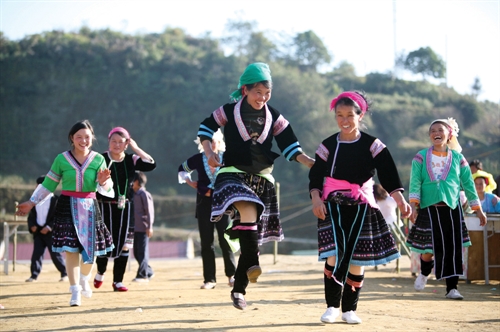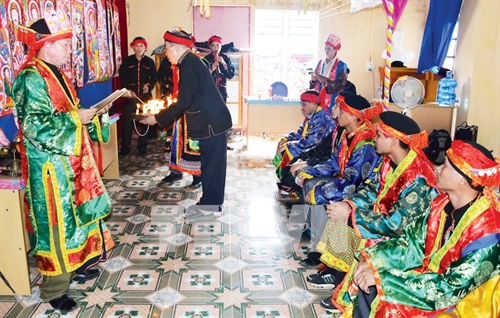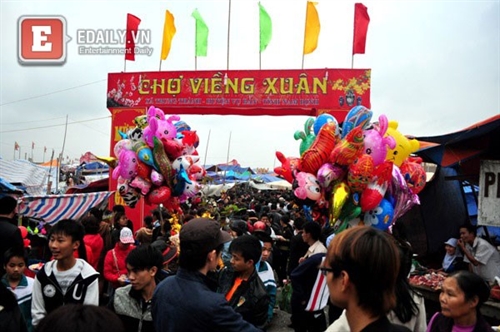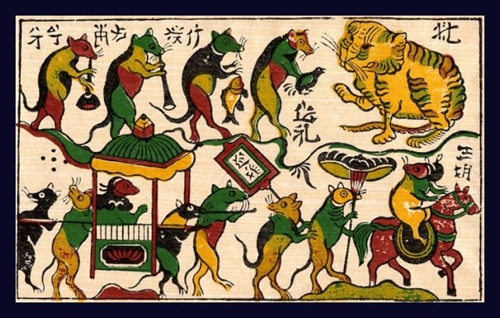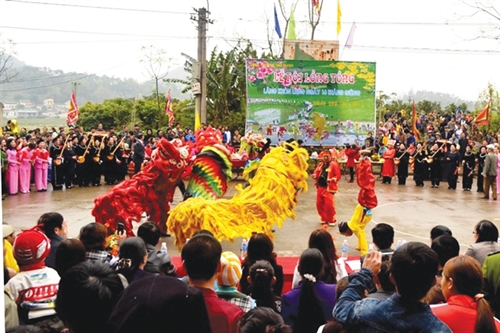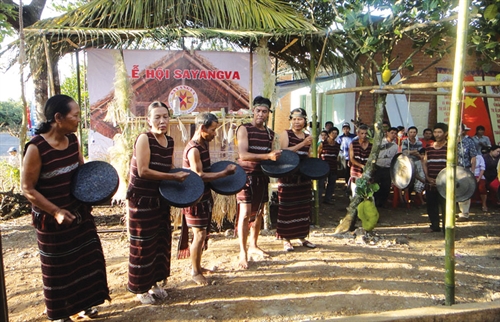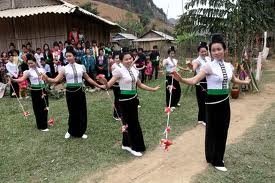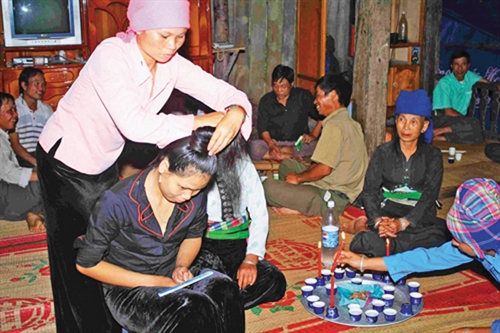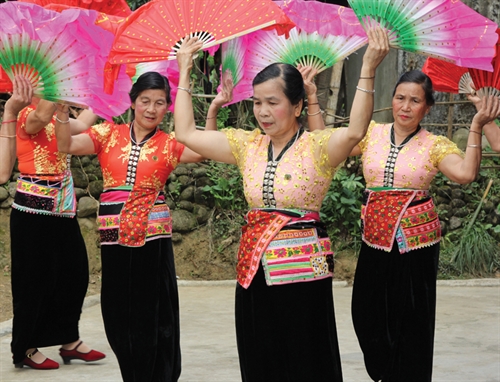Ta Thi Tam
Ethnology Institute
The Cong, a Tibeto-Burmese language group, is one of the six smallest ethnic minority groups in Vietnam with a population of just above 2,000. The Cong, also called Xa, Cong Bo Kham, Xam Khong or Mang La, lives along the Da river in Lai Chau and Dien Bien provinces and in areas bordering Laos and China.
A Cong family consists of a married couple and their children living under one roof. According to Cong custom, it is extremely important for a family to have a son who perpetuates the family line, looks after the parents in their old age and organizes marriages for younger siblings when the parents get old. Since very small, the oldest son of the Cong family must stand on his feet and help his parents take care of his younger brothers and sisters and do the housework.
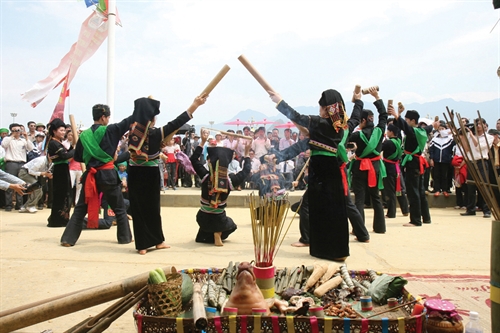 |
| Cong boys and girls sing and dance at Que La Loong (maize festival) in Muong Te district, Lai Chau province__Photo: Anh Tuan/VNA |
The Cong family names include Lo, Ly, Chao, Chang, Hu and Lung. Various clans live together in the same village, but usually only one makes up the majority. Clans are distinguished by their own taboos and ways of worshiping ancestors. Chao clan, for instance, has the taboo against eating kestrel while the Ly clan does not eat squirrel and the Hu, not tiger. Each clan has a head who takes charge of general affairs of the clan, including marriage.
Patriarchal families
The Cong people live in patriarchal families where children are given the father’s family name and men decide all family and external affairs. The oldest son of the family decides his family affairs when his father dies. The Cong sons can inherit property left by their parents. For the ethnic group, paternal relatives are the closest ones who share their clan’s affairs and offer more assistance when needed. They help each other in building houses and in important rituals through contributing rice, wine, chicken, pigs or even money.
There now still exist in the Cong society two forms of family: the extended family and the nuclear one.
An extended family consists of multiple generations living under one roof. A four-generation family is made up of great grandparents, grandparents, parents and children and headed by the great grandfather who represents the family in external affairs. The great grandfather makes decisions on division of property and farming land, family-related paperwork and administrative work. Whenever there is a quarrel among family members, he acts as a conciliator. The grandparents become the family owners when the great grandfather dies. Healthy grandparents still do farm work and decide on land and plant varieties for cultivation. They also make decisions on spending and savings and external affairs such as helping their relatives in funerals, weddings and building new homes.
The third-generation children in the multigenerational family are the main supporters of the family. Their marriages are decided by their great grandparents and grandparents.
Young grandchildren are taken care of and taught by other family members. They are assigned to do housework suitable to their age.
In a three-generation family, a common model in the Cong society, healthy grandparents are in charge of family affairs as the Cong thinks the family’s second-generation sons remain too young to be assigned important tasks. When the grandparents are old and weak, the oldest second-generation son is responsible for all family affairs and divided with more property than other family members. He and his wife join the grandparents in organizing marriages and building homes for younger sons of the family who are given buffalos, cows, production tools and land to live on their own after marriages. However, the paternal grandfather, as the family owner, represents the family in rituals and the community and his name is the name of the household. Other issues like sharing financial and work responsibilities in three-generation families are similar to those in the four-generation ones.
A nuclear family is composed of a newlywed couple that has separated from their extended family. The couple sets up an altar in their own house to worship ancestors separately. After marriage, the couple is independent economically and makes their own decisions in daily life. They are responsible for their farm work, housework, caring for their children and maintaining the traditional customs and practices.
Maternal relations still important
Cong custom requires the groom to stay at the bride’s home. During the wedding, one or two elderly persons representing the groom’s family will talk with the bride’s relatives about the groom’s stay at the bride’s home. Successful talks help bring honor to the groom’s family and ease the groom’s stay at the bride’s home after marriage.
Maternal relatives, especially younger and older brothers of the mother, play an important role in the relationship of a Cong family. The family always seeks advice from maternal uncles in important affairs. They preside over formalities of their niece’s wedding where each maternal relative receives a present from the bride’s family. Each gift can be a bamboo gutter filled with fresh fish, a bag of glutinous rice or a piece of boiled or grilled meat. Maternal uncles also give presents to their niece before she moves to live with her groom’s family. The presents put in a back basket include a rooster and a hen and pumpkin seeds with the hope that the newlyweds will have a lot of children, rice seeds for bumber crops, and taros reflecting the wish for children’s good health. The Cong believes that showing respect to maternal relatives helps them gain prosperity. That’s why they always share their hunted animals or fish with maternal relatives. Maternal relatives are always the first guests to be invited to parties or rituals and maternal uncles are the first to be invited wine although they are very young.
Whenever a son of a Cong family wants to live separately from his family, maternal uncles are always present to witness the division of the family’s properties to that family member. The Cong believes the presence of maternal uncles not only brings luck to that person but also ensures fairness in the division of the family’s properties.-
